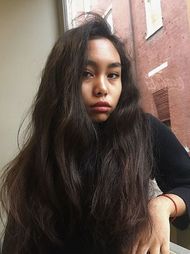by Tiara Bounyarith Tiara Bounyarith Tiara Bounyarith We asked summer intern Tiara to reflect on her experience on the Literary Committee. She wrote about it and went one step further, interviewing a few others to see what it was like for them. Every year, Philadelphia Young Playwrights hosts its Annual Playwriting Festival, which welcomes submissions from elementary, middle, and high school students from all across Philadelphia and neighboring counties. With the hundreds of plays Young Playwrights receives yearly, it would be nearly impossible and inefficient to solely have staff review entries. Assisting Young Playwrights with play evaluation is the Literary Committee, a contingent of teachers, interns, employees, volunteers, and others who thoroughly read a varying number of submissions. Readers also are responsible for two primary tasks, one of them being to evaluate which plays have the potential to advance to the Final Committee, who determines possible festival winners. The second assignment for readers is to compose a letter of response to each play’s author (or authors) detailing the piece’s strengths and useful revision tips. Overall, the participants in the Literary Committee contribute valuable time and energy in aiding the Playwriting Festival’s operation. Reading for the Literary Committee was one of my duties as an intern here at Philadelphia Young Playwrights. For me, it was a two-day process, the second being more laboring than the first, as I spent that day drafting letters to the participating students, fingers flying above my keyboard for 3 continuous hours, mind growing more and more stale as the minutes ticked by. The first day, though slightly more lax in terms of activity, was insightful. During this period, I perused my assigned plays, and formulated bulleted lists of “pros and cons” for each submission - in other words, the assets of the play that I found to be effective versus the ones I felt had promise but needed some modification. Considering I was reading the works of 6th graders with little to no experience in theatrical writing, I found my “cons” lists to all be significantly longer than the “pros”. However, this doesn’t mean I loathed any of the plays (or the task of spending 5 hours at my computer with them). In fact, I utterly enjoyed them. While reading, I found myself filtering out the technical errors to see the plays for what they really were: the ideas of budding writers (in all their dramaturgically inaccurate glory). The art of writing, regardless of age, is a discipline that requires brain power strong enough to take one tidbit of your imagination and expand upon it while nurturing the same amount of fervor all throughout the debilitating process. To see this notion illustrated in the creations of people as young as 12 or 13 was eye-opening. It showed me what forms of narratives first-time writers cherished enough to write one-act plays about. There was one particular play I read that stuck out among the rest. Besides the fact that it was the lengthiest of the batch, the writing resonated with me in the sense that it didn’t only tell a unique story, but it also integrated important themes of individual growth and self-resilience. To request a 6th grader to write a play for the sake of a school assignment is one thing. To have the 6th grader construct a plot with layers beneath the surface level is another. It proves that even the youth have voices to contribute, and refreshing perceptions to offer. My personal experience as a Reader for the Literary Committee probably wasn’t the same as those of other Readers. To gain more perspective, I’ve asked 2 other Readers to share their reflections. What were some unexpected challenges you encountered while reading, recommending, and writing responses for plays? Byshera: When I was reading these plays, I had to be aware that they are written by students who may have never written creative fiction before, let alone had some unknown person guide the quality of their work. Because of this, I had to adjust the way that I looked at each piece and think, “What is this student trying to articulate and are they doing that to the best of their ability?” When it came to writing responses, I thought it would be difficult to write a page of constructive feedback that was also encouraging. However, you don’t want to be discouraging. Thankfully, I was a student who wrote a play for PYP in high school, so I was able to emphasize and thus focus on the positive elements of each student’s writing. Emily: An unexpected challenge I've run into is the 1-page limit for responses. We receive so many wonderful plays each year, and sometimes, I want to write about a piece for more than a page! The participating young writers gain tailored responses from readers that allow them to review their plays’ points for revision, but also realize their hidden skills as artists. How have you benefited from your experience as a reader for Philadelphia Young Playwrights’ Literary Committee? Byshera: It’s really inspiring to see students from third grade to high school taking ownership of their voices. As an adult who aspires to write, it is difficult to put your work out into the world. You are afraid of rejection and that others won't care about what you have to say. This fear often leads to self-policing. You are afraid so you don't even try. However, these students are unencumbered by those fears. At its very worst, the Young Playwrights Process allows them to give voice to how they are feeling through fiction and get encouraging feedback from someone who wants them to keep writing. At its best, they get to experience what it is like to have something they wrote adapted into a play that hundreds of people will see. As a reader, I get to give students, hopefully, useful feedback that will propel them into other writing projects. I’m definitely taking away a new perspective and attitude about being a reader. Emily: I think the biggest benefit to being on the literary committee is getting to know the schools through the writing their students produce. As a TA for PYP, I only work with a small percentage of our student community during the school year. So, it's been lovely to read plays from schools I am not familiar with and see how much thought and dedication went into writing them. Provide an example of a play that you have read that stood out to you, and explain why this piece was so memorable. Byshera: One play that stood out to me was String by Maya Jennings. There were some really advanced themes being addresses and very complex characters created by an 8th grader. The story is all about Lee Cuevas, a teenage boy who suffers from anxiety and a learning disability, and his older sister Isa Cuevas, a slightly older teenager who aspires to attend a private scientific institute. But throughout the story, you can see this complex backstory unfolding and I think that once the writer finds the goal of the play she will have something really powerful. These characters really stuck with me and I found myself wanting more and that is the sign of good storytelling. Emily: My favorite play of the summer (so far) is about a boy who builds a time machine in his backyard. This play is memorable for so many reasons, but the best thing about it is the fast-paced, witty dialogue that is flooded with puns. It was a joy to read, and I am excited to pass it along to other readers. In a culture where ageism is still prevalent and students who yearn to impact their communities are repressed from doing so due to their age, the expressions of young people are constantly being silenced. As a young writer myself, attempting to insert myself into a world where my opinions may not be as valued as those with more life experience can be daunting. It makes me feel as though my voice is something I have to safeguard - a fragile sentiment vulnerable to the world’s harsh sect of adults. However, Philadelphia Young Playwrights celebrates young people taking the initiative to broadcast what they have to say, and goes as far as to motivate students to prevail in their writing. For me, the mere act of reading and responding to the works of children across the city made me feel like I was a part of this virtue. It allowed me to be a team member of a process that cultivates promising artists from the ground up - a process that ensures writers of all ages that their voices can and will be heard.
2 Comments
Eunetta Perkins
8/22/2018 03:06:48 pm
Thank you for sharing your experience, Tiara! PYP was active in my high school (CAPA) when we took playwriting 12 years ago, and I’m so happy to see that it’s still going strong!
Reply
Leave a Reply. |
Categories
All
|
|
This work is licensed under a Creative Commons Attribution-NonCommercial-ShareAlike 2.0 Generic License.
|
|
© Philadelphia Young Playwrights - 1219 Vine Street, Floor 2 Philadelphia, PA 19107
Phone: 215-665-9226 Fax: 215-665-9228 Email: [email protected] |


